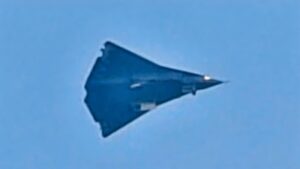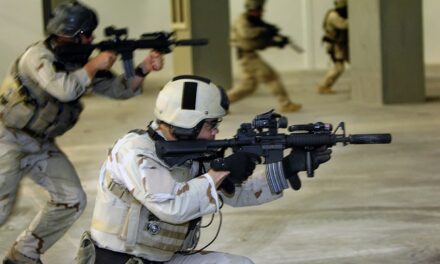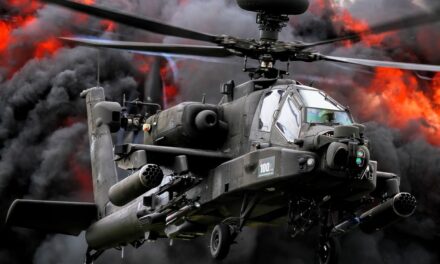We support our Publishers and Content Creators. You can view this story on their website by CLICKING HERE.
The Islamic Republic of Iran’s back is to the ropes. Not only is Hamas on the defensive but Israel’s sabotage of Hezbollah beepers quite literally neutered much of Hezbollah’s rank-and-file. The fall of the Assad regime removed a key logistical node upon which the Islamic Republic depended for 45 years. Continued supply to the Houthis is difficult given the vulnerability of Iranian supply lines and the renewed confidence of the anti-Houthi coalition put an expiration date on the Yemeni tribal group’s grip on power. This leaves Iraq as the Islamic Republic’s chief ally and perhaps its only remaining member of the “Axis of Resistance.”
Even Iraqis are hedging, however. Iraqi politics—even its Shi’ite politics—have always been more nuanced than many in Washington recognize. Some Iraqi Shi’ite leaders, Badr Corps chief Hadi Ameri, for example, unabashedly sell Iraqi sovereignty out to Iran. Many Da’wa Party members remained more dubious toward Iran, especially if they had spent their exile years in the United Kingdom rather than Syria or the Islamic Republic. While the State Department subsequently put its hope in Muqtada al-Sadr as an antidote to Iranian influence, diplomats misread him. Sadr’s opposition to Iranian Supreme Leader Ali Khamenei was not because he disagreed with the concept of velayat-e faqih, but rather because he hoped to become supreme leader himself.
The rapid fall of the Iranian proxies also renews focus on Iraq in other ways. For decades, the de facto face of the resistance front was Qassem Soleimani, the head of Iran’s Qods Force, the Islamic Revolutionary Guard Corps’ external operations wing. Soleimani was both charismatic and kept a high public profile, especially for someone whose main job was to oversee covert operations. Iraqis, Syrians, and Lebanese all said that Mohammad Javad Zarif, Iran’s official foreign minister, was more ceremonial and then coordinator for Iran’s useful idiots in the West, while Soleimani himself acted as Iran’s de facto foreign minister.
After President Donald Trump ordered the strike that claimed Soleimani’s life outside the Baghdad airport, leadership of the resistance front passed not to Esmail Qaani, Soleimani’s colorless successor within the Qods Force, but rather to Hezbollah Secretary-General Hassan Nasrallah. Nasrallah had also built a larger-than-life persona. When he spoke on television, nearly all Lebanese stopped to listen. Compare that with Naim Qassem, the new head of Hezbollah. On January 4, 2025, Qassem gave a speech on television. Rather than fall silent, photos sent to me in near real time show waiters and patrons at a restaurant in Dahieh, southern Beirut, ignoring him as they went about their business. With Nasrallah’s death, resistance-front leadership likely passed to an Iraqi—the 50-year-old Qais al-Khazali, head of Asaib Ahl al-Haq. Like Soleimani and Nasrallah, Khazali can count dozens of Americans and hundreds of others among the victims of his militia. He led the Iran-backed Special Groups in the first years of the Iraq War until his capture by British forces; the British government later released him in exchange for a hostage kidnapped by his group. The American Enterprise Institute published the papers seized during his capture and related to his interrogation that make clear his culpability and the fact that he sang like a canary once captured. The U.S. State Department still designates Khazali as a terrorist and Asaib Ahl al-Haq as a terror group.
Khazali knows that he is now the face of the resistance front, and he also recognizes that such a reality can significantly shorten his life span. For weeks, he has disappeared. Some Iraqis speculated that he was injured or dead, though his spokesman subsequently said he was merely on a study tour in Iran.
Just as President Barack Obama continued George W. Bush’s withdrawal from Iraq until the reality of the Islamic State’s rise forced a U.S. return, so too does President-elect Trump appear prepared to continue President Joe Biden’s redeployment and withdrawal. Biden’s pullout was always unwise. It was a display of weakness in the face of the apparent strength of Iran’s resistance front. With Assad gone and Hezbollah down if not out, the United States should aim to contain the Islamic Revolutionary Guard Corps and its proxy forces to Iran itself, and not allow it to treat Iraq as a satellite or base of operations.
Trump’s kneejerk reaction may be against overseas deployment, but the United States need not do much. Successive Iraqi leaders recognize their weakness. While Washington chides them about Tehran, Baghdad is between a rock and a hard place; after all, Iraq cannot change its neighbors anymore than Ukraine can stop bordering Russia. Iraqi nationalists have responded by carving out space by playing the United States and Iran off each other, much like the space created by two magnets repelling. Remove one magnet and the forcefield collapses. Should Trump order U.S. forces out of Iraq, he greenlights Iran’s dominance over Iraq.
Such an Iranian triumph will reverberate throughout the region. If Iraq is not a buffer, then Iranian backed militias can not only launch drones and missiles much closer to Israel, shortening their transit time, but Iranian-backed interests can also more easily destabilize Jordan whose stability the United States should no longer take for granted.
Former President of the United States Donald Trump speaking with attendees at the 2023 Turning Point Action Conference at the Palm Beach County Convention Center in West Palm Beach, Florida. By Gage Skidmore.
Donald Trump sees himself as a master strategist, yet one of his first moves in the Middle East might be to undercut the chances for his initiatives to succeed. When an opponent is against the ropes but still standing, it is not the time to call the match. Rather than stand down as Iran’s ability to project force beyond its borders declines, it is essential to invest more actively in Iraqi sovereignty and nationalism to help Iraqis maintain the independence they deserve and keep figures like Qais al-Khazali in the Iranian exile they deserve after prioritizing Tehran’s interests over those of Baghdad.
About the Author: Dr. Michael Rubin
Michael Rubin is a senior fellow at the American Enterprise Institute and director of policy analysis at the Middle East Forum. A former Pentagon official, Dr. Rubin has lived in post-revolution Iran, Yemen, and both pre- and postwar Iraq. He also spent time with the Taliban before 9/11. For more than a decade, he taught classes at sea about the Horn of Africa and Middle East conflicts, culture, and terrorism, to deployed US Navy and Marine units. Dr. Rubin is the author, coauthor, and coeditor of several books exploring diplomacy, Iranian history, Arab culture, Kurdish studies, and Shi’ite politics. The author’s views are his own.

 Conservative
Conservative  Search
Search Trending
Trending Current News
Current News 





